Interview: Journey Through Forgotten Worlds with Mikolai Napieralski
In this interview, we chat with the creator of Forgotten Worlds and discuss the challenges of the magazine industry and the necessity of passion
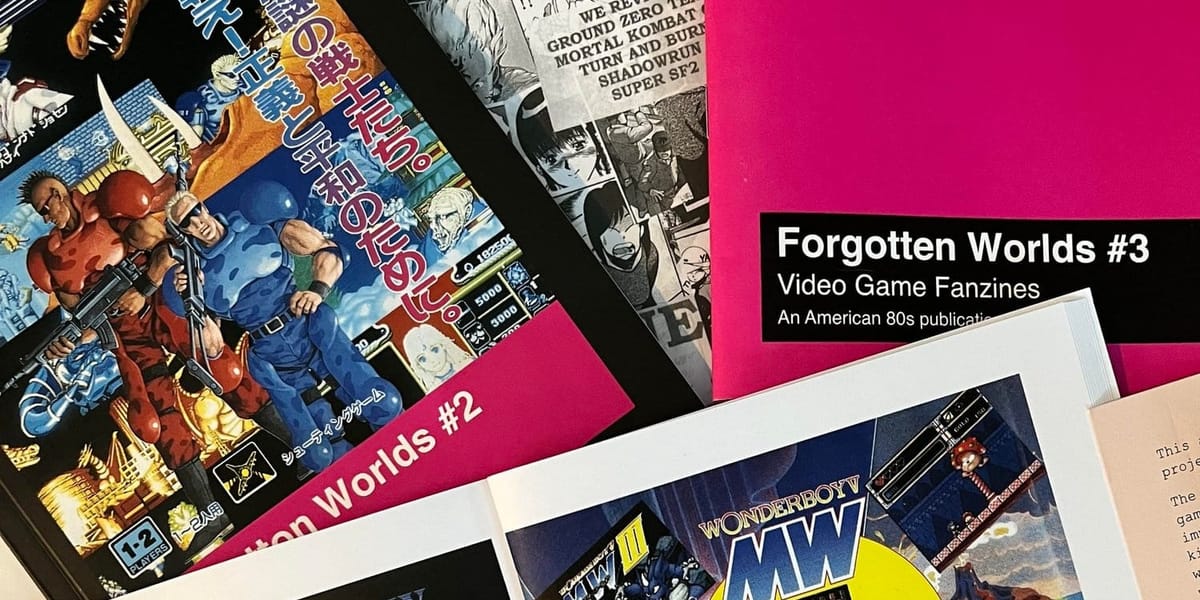
Today, we’re sitting down with Mikolai Napieralski, a Melbourne-based writer and editor whose life is as vibrant and dynamic as the city he calls home.
Above all, Napieralski is a guardian of gaming lore, a commitment that’s evident in his latest project, ‘Forgotten Worlds’.
Alongside his wife and their cherished poodle, Napieralski leads a double life: a corporate navigator by day and a passionate storyteller by night.
His journey through the world of journalism has spanned over ten years, taking him through the pages of global newspapers and magazines, where he’s crafted a diverse array of narratives.
What will you find in this interview?
Well, It becomes apparent that the magazine industry, particularly for gaming, is both underappreciated as an art form and challenging in an economic sense.
Printing is expensive, and it's unlikely to get any cheaper. To put it bluntly, does one need a touch of insanity to engage in printing in the modern era?
Well, Napieralski doesn't appear to be insane, but what he does lack in apparent insanity he makes up for in passion and then some.
Enjoy.
feedme.design: What got you into Forgotten Worlds and the whole retro gaming mag scene?
Napieralski: Long story short, this all started as a COVID lockdown project. I’m based in Melbourne, Australia, and we had the world’s longest lockdown. Something like 265 days over two years. I started Forgotten Worlds as a creative outlet and a way to keep myself busy/sane during that time.
More broadly, I’ve always loved video game magazines, still have all my old magazines from back in the 90s, and thought that they deserved more respect than they’re afforded. For a whole generation of kids growing up pre-internet, these publications were our foundational text.
They showed us a world beyond our suburbs. So I wanted to go back and interview the people involved and create a historic archive of the era. One thing led to another, and Forgotten Worlds became a magazine about old video game magazines.
FMD: What's the coolest thing about old gaming mags, and do you think modern gamers are missing out in a mostly digital world now?
Napieralski: These old magazines offer a window into a world that doesn’t exist anymore. The gaming industry was going through massive change and transformation back in the 90s.
Everyone was trying to grab a slice of the market and so you had all these unique systems from NEC, SNK, 3DO, Atari, Commodore and others alongside Sega and Nintendo.
It was chaos.
But it was also really exciting, with new systems being announced all the time, and weird imports filtering through from Japan. These days the video game industry is a lot safer, professional and stage-managed. Which is cool, but you lose something in the process.
I don’t know if people can miss something they never experienced. But having a month’s worth of news, reviews and previews packed into a single publication gave everything a real gravitas and a tangible weight that you don’t get from the internet.
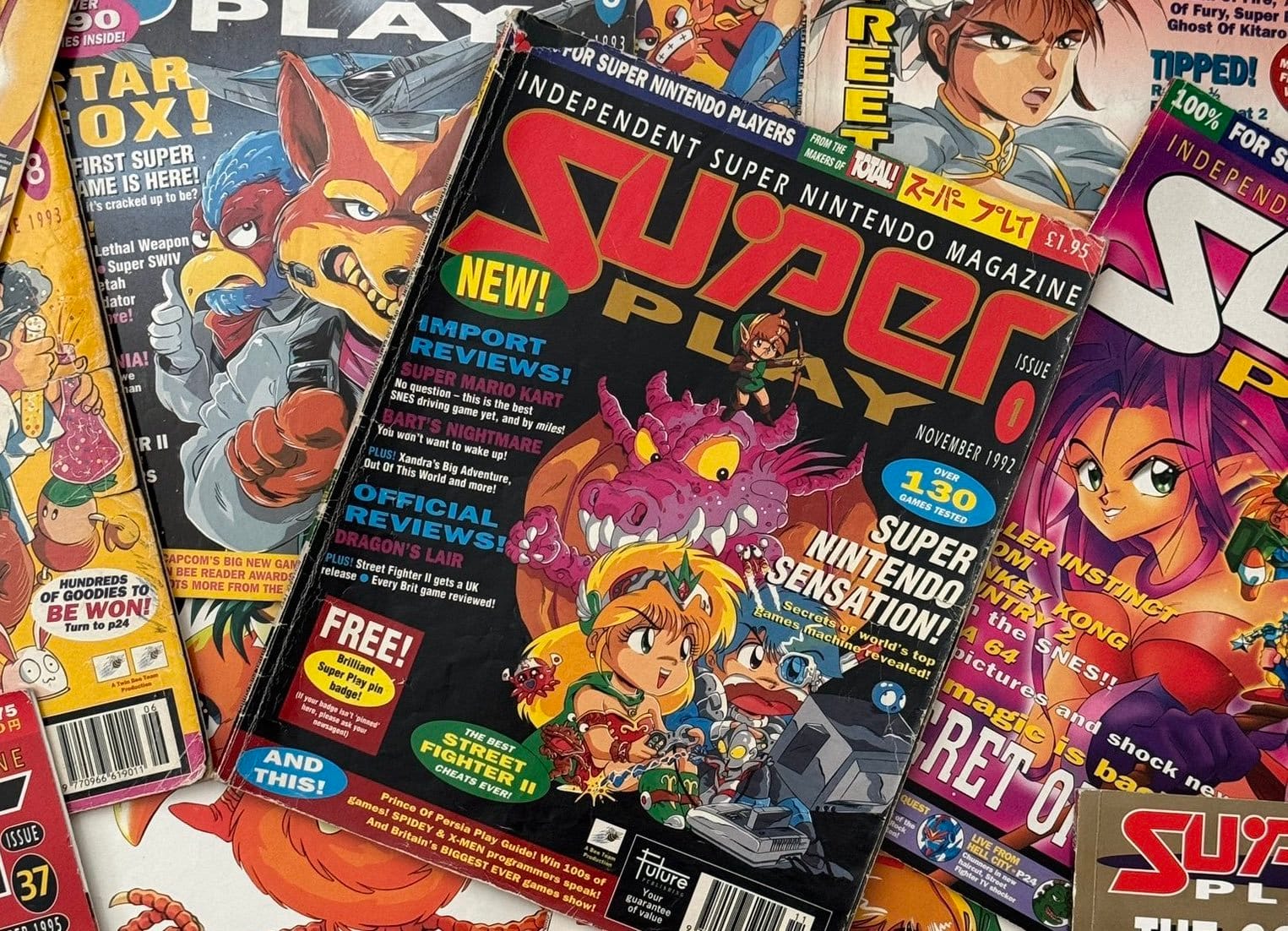
FMD: Do you remember the first gaming mag you ever checked out? How did it shake up your gaming journey?
Napieralski: My mom was a librarian and used to bring me home copies of Compute! magazine back when they still had type-in-programs. I interviewed the former editor Peter Cosco about that a little while back.
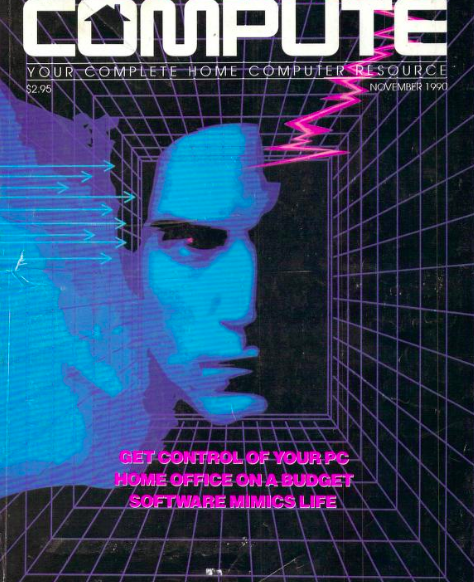
From there I discovered titles like Computer & Video Games (CVG), Mean Machines, Electronic Gaming Monthly (EGM), Video Games and Computer Entertainment (VG&CE) and various others.
Australia is a PAL gaming market, so we used to get all the UK magazines on import - although you’d have to wait a few months for them to arrive. So all your news was about three months late.
FMD: If you could bring back one old gaming mag from the grave, which one would it be, and why?
Napieralski: I’d love to see a reboot of GameFan. There are so many obscure, niche games coming out of Japan that never get any coverage in more mainstream news sites. It would be cool to have a magazine that really championed and profiled the limited-run games that you see on sites like Play Asia.
Everyone is covering the same big games these days, I’d like to see someone talking up obscure Japanese Shmups over multiple pages.
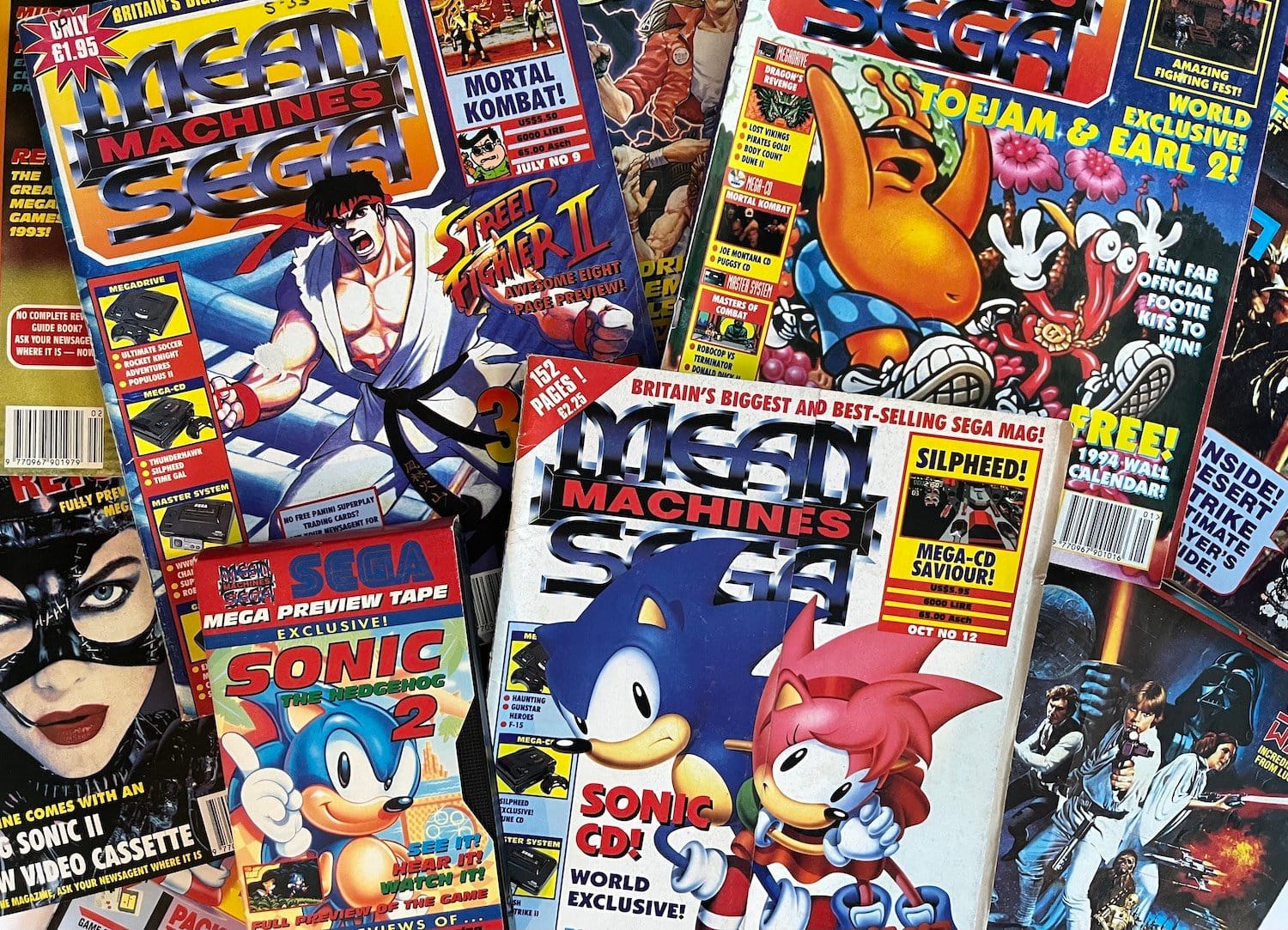
FMD: What's the best part of retro gaming culture that you're keeping alive through Forgotten Worlds?
Napieralski: For me, the games are just one part of the equation. I’m just as interested in the culture, politics, dramas and well-intentioned failures of the industry. So that’s what I’m trying to focus on.
Why was Sega so big in the UK market? How was Atari perceived in Japan? Why did the South Korean industry take a distinct evolutionary path? Those are the sorts of things I’m interested in, so that’s what I research and write about.
You can get news, previews and reviews anywhere. I want to document the untold stories that happen behind the scenes. If you read between the lines, old video game magazines are amazing resources for digging up and contextualising industry shifts.
FMD: How do you put Forgotten Worlds together? We imagine it could be quite time-consuming. What can fans expect from each release?
Napieralski: It’s a nightmare. And it’s expensive.
And the cost of international shipping from Australia makes the economics almost impossible. Basically, I have to sell out each run to break even.
I wrote a detailed account of the process on the website and it makes for grim reading.

Let’s just say no one is doing this for the money, so that means lots of weekends and late nights working on these. In any case, I’m still experimenting with different formats, concepts and themes for each issue.
If I’m going to lose money I want to do it in interesting ways.
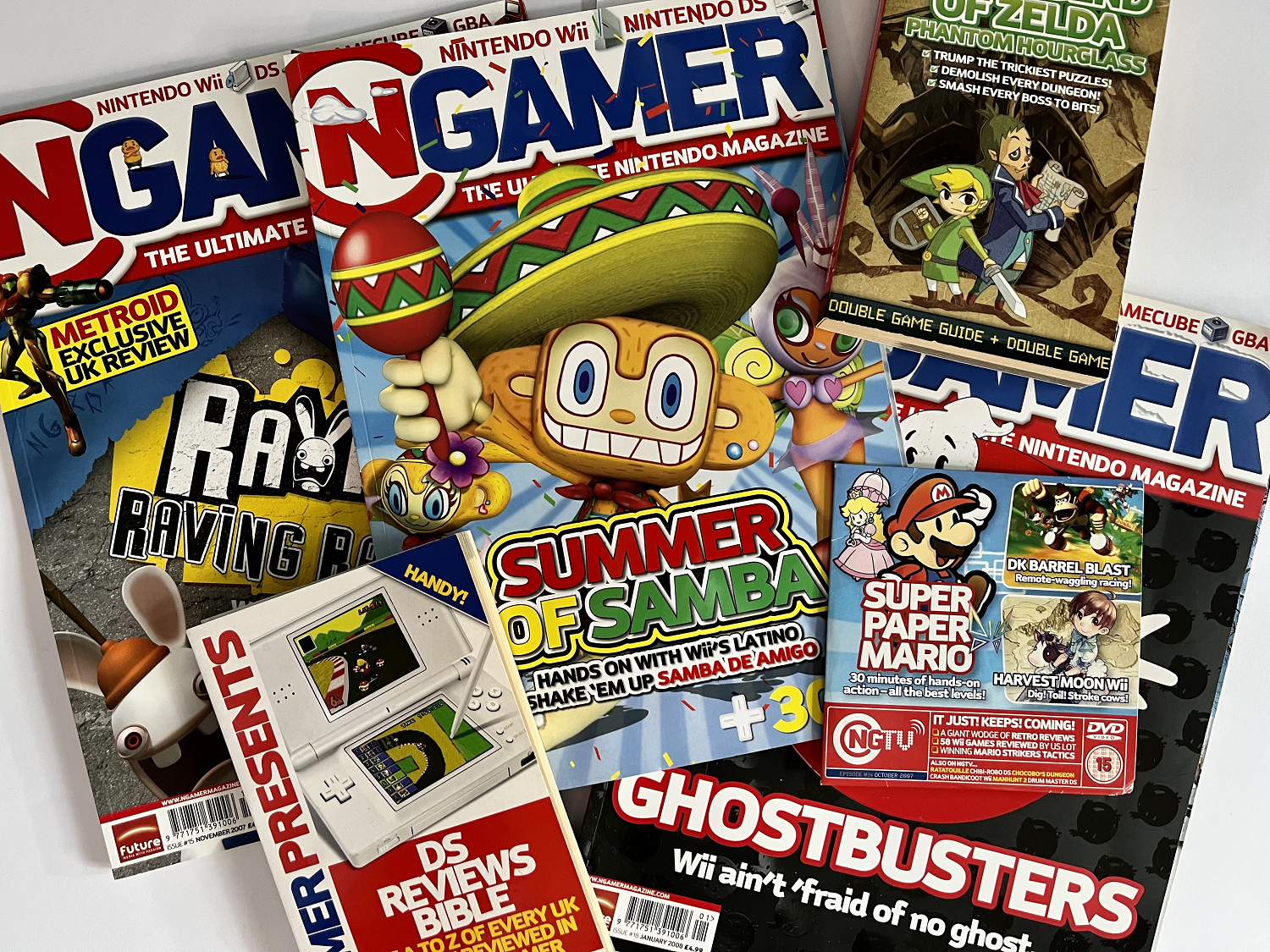
FMD: Where do you see Forgotten Worlds heading as you dive deeper into gaming mag history?
Napieralski: Ideally, I want to release a nice coffee table book dedicated to old video game magazines. So these initial magazines are small tests to see what works, collate ideas and content, and build a like-minded community.
FMD: Any wild moments or surprises while digging into gaming mag tales for Forgotten Worlds?
Napieralski: The breakout article for Forgotten Worlds was about the sudden implosion of Australia’s Hyper magazine.
It ran for 25 years, and then it just disappeared… I spoke to the former editor, Daniel Wilks, and he was brutally honest about what happened with management behind the scenes.
That article provided a template for the sort of content and stories I’ve tried to highlight.

FMD: What's the big takeaway you hope fans get from Forgotten Worlds, besides just a blast from the past?
Napieralski: That old video game magazines are important.
A generation of kids grew up reading these magazines and they influenced their worldview in various subtle ways. Women had magazines like Dolly, Girlfriend, 17, Sassy, etc, growing up as a guide for modern life. For men of a certain age, EGM, Mean Machines, etc played a similar role.
They were the first things we read, and the sometimes subtle, sometimes not-so-subtle worldviews and attitudes they expressed influenced us, even if we don’t realise it,
FMD: Finally, If you could time-travel back to the heyday of gaming mags, which iconic cover story would you want to break, and why?
The PC Engine escaping Japan and making its way to the west via grey imports circa 1989.
It was such an amazing piece of kit, so far ahead of what we had, and so exotic. These days the industry is very much homogenized and everything is the same all over the world.
That wasn’t the case in the 80s and 90s.
You can find out more about Forgotten Worlds by visiting forgottenworlds.net/


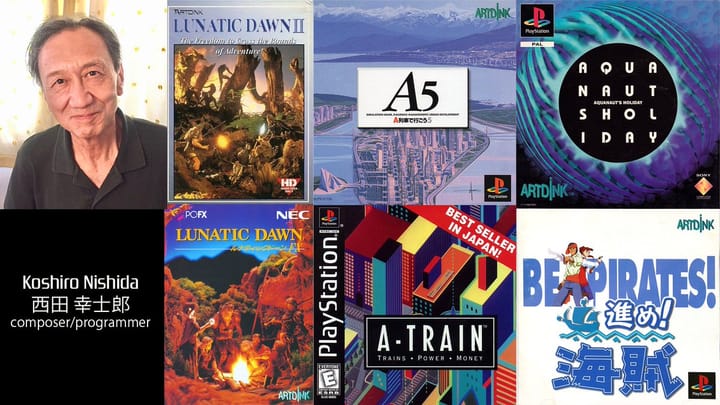

Comments ()